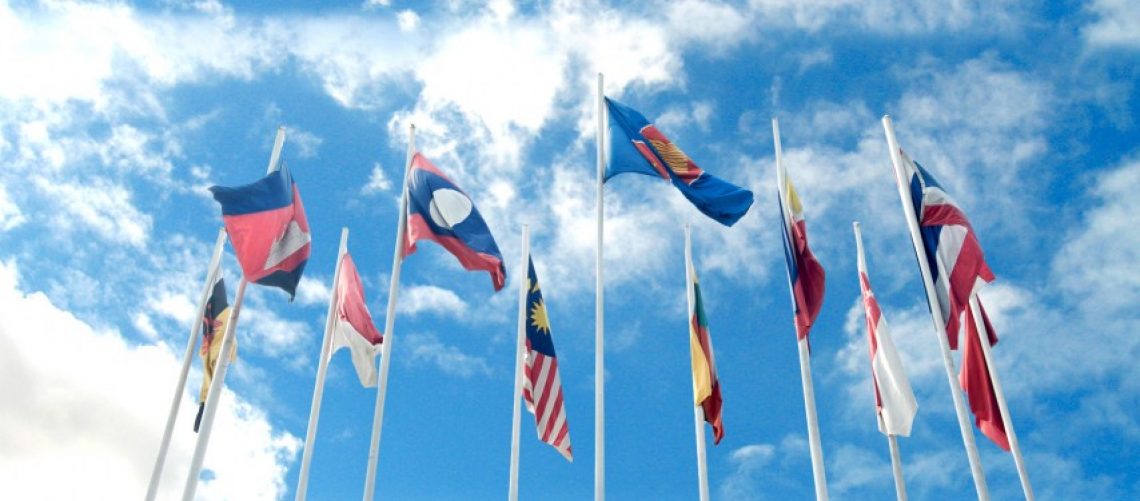- The Fourteenth meeting of the ASEAN-Australia Forum was held in Canberra on 22-23 April 1991.
- The substantial and growing areas of cooperation between ASEAN and Australia were welcomed by the Minister of Overseas Trade and Development and Acting Minister for Foreign Affairs and Trade, Dr. Neal Blewett, in opening the Forum.
- Dr. Blewett noted that, while trade, investment and economic cooperation continued to increase, cultural and people-to-people exchanges in areas such as the media, law, health and sport were increasing. ASEAN-Australia dialogue on issues such as Cambodia, nuclear, chemical and biological weapons, refugees from Indo-China and environmental issues had also been productive.
- The private sector, represented by the ASEAN – Australian Business Council (AABC), participated in all aspects of the Forum. A significant feature on the agenda was the Joint Business-Government session where the market opportunities for ASEAN and Australian products in each other’s markets were examined.
- Both sides called for an increase in two-way trade and in Australian investment in ASEAN. The tariff reductions announced in the Australian Government’s March Economic Statement would contribute to an increased trade flow.
- The Forum’s theme of co-operation for mutual benefit was also demonstrated during the Workshops on the environment, education and science and technology and in the specialist group discussion on telecommunications.
- Australia is to send a fact-finding mission to all ASEAN member countries to determine the feasibility of the proposed education projects. This fact-finding mission will also examine funding issues related to implementation of the proposals.
- The Forum agreed that the Environment Workshop was a useful and timely initiative which added a new dimension to ASEAN-Australia Cooperation. Participants recognized the increasing significance of environmental issues for governments and endorsed the need for closer cooperation between ASEAN and Australia on environmental matters.
- In this context the Workshop discussed mechanisms for cooperation in the key areas of research and development, training and education and information exchange. It noted the important role which the private sector could play in resolving environmental problems.
- The Forum also endorsed the proposal that Australia should be closely involved in the activities of ASOEN (ASEAN Senior Officials on the Environment) and recommended that the June meeting of ASOEN consider ways of achieving this.
- ASEAN and Australia representatives discussed ways of broadening science and technology collaboration. Both sides agreed that strong links between ASEAN and Australia were important to the future health of their research and development programs, and agreed to continue their dialogue.
- The specialist discussion on telecommunications policy agreed that a better understanding of the telecommunications policies of the various ASEAN countries and Australia will facilitate growth in trade of telecommunications services and goods. Greater liberalisation of telecommunications policy and regulatory arrangements will further assist this growth.
- ASEAN and Australia have agreed to exchange information on telecommunications policy and regulatory developments.
- ABOUT ASEANThe Association of Southeast Asian Nations, or ASEAN, was established on 8 August 1967 in Bangkok, Thailand, with the signing of the ASEAN Declaration (Bangkok Declaration) by the Founding Fathers of ASEAN: Indonesia, Malaysia, Philippines, Singapore and Thailand. Brunei Darussalam joined ASEAN on 7 January 1984, followed by Viet Nam on 28 July 1995, Lao PDR and Myanmar on 23 July 1997, and Cambodia on 30 April 1999, making up what is today the ten Member States of ASEAN.Menu
- WHAT WE DO
ASEAN organs always strive to achieve ASEAN’s goals and objectives, the Secretary-General of ASEAN and the ASEAN Secretariat shall be functioned as coordinating Secretariat to help facilitate effective decision-making withing and amongst ASEAN bodies. In addition, each Member State shall appoint a Permanent Representative to liaise with Secretary-General of ASEAN and the ASEAN Secretariat
Menu - WHO WE WORK WITH
ASEAN shall develop friendly relations and mutually beneficial dialogues, cooperation and partnerships with countries and sub-regional, regional and international organisations and institutions. This includes external partners, ASEAN entities, human rights bodies, non-ASEAN Member States Ambassadors to ASEAN, ASEAN committees in third countries and international organisations, as well as international / regional organisations.
Menu - OUR COMMUNITIES
The rodmap for an ASEAN Community (2009-2015) was declared by the leaders in 2009. The ASEAN Community, anchored on three community pillars: Political-Security Community, Economic Community, Socio-Cultural Community was launched in 2015. The ASEAN 2025: Forging Ahead Together was introduced in 2015 as a Post-2015 Vision. It comprises the ASEAN Community Vision 2025, the ASEAN Political-Security Community Blueprint 2025, the ASEAN Economic Community Blueprint 2025 and the ASEAN Socio-Cultural Community Blueprint 2025
Menu - SITEMAP





